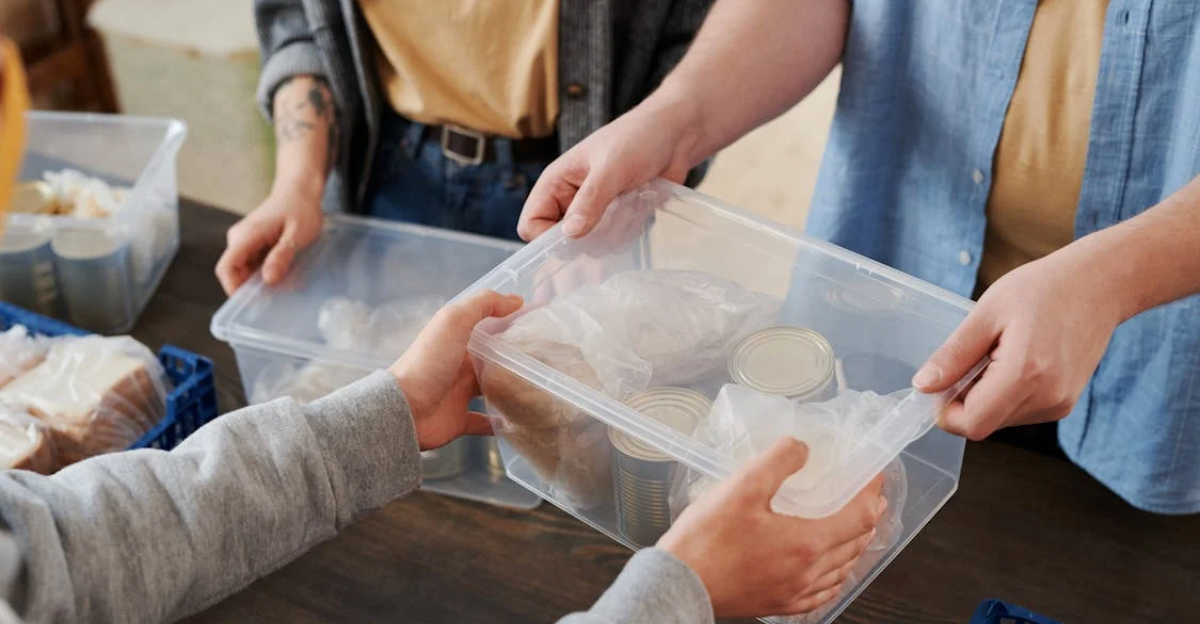
It’s normal to be worried after losing a job. But what really matters is how long you can stretch your money until you figure out what to do next. Stay calm, be patient and plan ahead.
Not sure where to start planning? Don’t worry! We have nine simple recommendations to help you keep what you have and stretch your money.
1. Make a Simple Budget

Start by making a simple budget. Ask yourself what you can do to make money, maybe through savings, unemployment benefits, or something else, and then split your remaining funds into two groups: your needs (rent, utilities, groceries) and wants (memberships, dining out, travel). This will help you to keep track of your money and plan without getting stressed out. You don’t need anything fancy; a simple notebook or a free budgeting tool would serve just fine.
2. Apply for Unemployment Help Right Away

Another important thing you should do is apply for unemployment benefits. This can help you pay your bills and stay afloat while you’re looking for a new job. Many states have online forms that are easy to use and phone lines that can help you go through the paperwork. The sooner you apply, the faster you’ll get paid, so don’t wait, because millions of Americans depend on this safety net. One more thing: getting the things you need ahead of time, like your Social Security number and last pay stub, can speed up the application process and make it less stressful.
3. Cut Back on Things You Don’t Really Need

It may be time to assess what you need versus what you want. If you’re not making great use of that gym or hot yoga membership, maybe consider cancelling for the time being. Or, if you’re not streaming on all three browsing subscriptions, maybe cancel two for now. Also, plan your meals ahead of time and make a buying list for food, too. This will help you save a significant amount each month.
4. Contact Creditors and Service Providers

Many companies do understand these trying times and eventually will be willing to work with you by offering alternative payment options. So reach out to your lenders, service providers, or landlord as soon as you can, be honest about what’s really happening, and ask if they can lower your payments, waive fees, give you more time to pay, or just set up a binding note about particular payment times. It’s often easier than you think, and they want to help if they can, as long as you also do your part.
5. Look for Temporary or Part-Time Work

You can work as a freelancer or seasonal worker or get into the “gig economy” to pay your bills while you wait for your next full-time job interview. They may not be your dream jobs, but they can still help you make money, meet new people, and learn new things.
6. Keep Your Health Insurance Covered

These days, having health insurance is crucial, especially if you are unemployed. Medical bills that come up out of nowhere can be expensive, but having insurance will protect you from them. This will give you peace of mind and financial security when things go wrong. COBRA (Consolidated Omnibus Budget Reconciliation Act) may let you keep the insurance your old employer gave you for a short time, but it can be expensive. See if you can get Medicaid or some other kind of financial help. You could also look for cheap plans on the health insurance marketplace.
7. Don’t Take on New Debt with High Interest

It’s easy to borrow more money when you don’t have enough, whether it’s through credit cards or payday loans, and worse is that these kinds of loans have a very high interest rate, which can just make matters more complicated! If you’re having a challenging time with debts, you can talk to a credit counselor to help you come up with a plan to pay it off. Fix your credit score over time and keep debt from getting out of hand.
8. Use Free Help and Resources

There are many free resources in your community that can help you save money, like food banks, utility assistance programs, and even private charities. They’ll also advise you to shop smart, wait for sales, and use coupons to save money on food. Libraries and community centers often have helpful things to offer, like free internet access and job search workshops. So don’t be shy! Check out what’s available in your community and at your local library,
9. Plan Your Next Steps for Recovery

It’s important to plan for recovery after losing your job. Start by making targets that you can reach to pay off any debts accumulated, focusing on the ones with the highest interest rates. You can also look into debt merging or ask your creditors to make payments easier, and then build up your savings as soon as you get a new job. Start with an emergency fund to cover any sudden costs. By patience and planning, you’ll get your money and confidence back on track.
